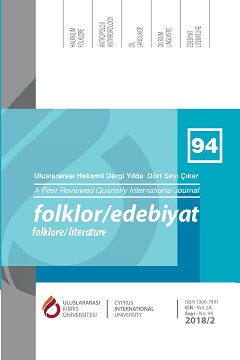Between Marxism and Romanticism: Childhood and Education in the Works of Ernst Bloch
Between Marxism and Romanticism: Childhood and Education in the Works of Ernst Bloch
Author(s): Nina CemiloğluSubject(s): Education, Epistemology, Contemporary Philosophy, Marxism, Hermeneutics
Published by: Uluslararası Kıbrıs Üniversitesi
Keywords: Ernst Bloch; childhood; education; Marxism; romantic literature; Blake; Coleridge; Wordsworth;
Summary/Abstract: Ernst Bloch is a 20th-century German philosopher, associated with the Frankfurt School of critical theory. His most important philosophical works are The Principle of Hope (1959) and The Spirit of Utopia (1918). The aim of this paper is to explore Bloch’s views on childhood and education in the context of his own upbringing. Special attention will be paid to two important influences on Bloch’s thought: Romanticism and Marxism. This paper will be divided into three parts: The first part will provide a portrait of Bloch’s childhood and youth. It will trace his early inclination toward Marxism and Romanticism and elucidate Bloch’s attitude toward conventional education and learning. The second part will focus on the relationship between childhood, education and the human imagination. It will contain references to the following literary texts: William Blake’s “The School Boy”, Samuel Taylor Coleridge’s “Frost At Midnight”, William Wordsworth’s “My Heart Leaps Up” and Johann Wolfgang von Goethe’s The Sorrows of Young Werther. The third part will focus on the role of critical thinking in education. It will outline Bloch’s critique of conventional education in capitalist society and his vision of a different kind of education. Please note that all translations from Bloch’s Das Prinzip Hoffnung (The Principle of Hope), Pädagogica, Spuren (Traces) and Literarische Aufsätze (Literary Essays) are my translations.
Journal: Folklor/Edebiyat
- Issue Year: 24/2018
- Issue No: 94
- Page Range: 217-226
- Page Count: 10
- Language: English

